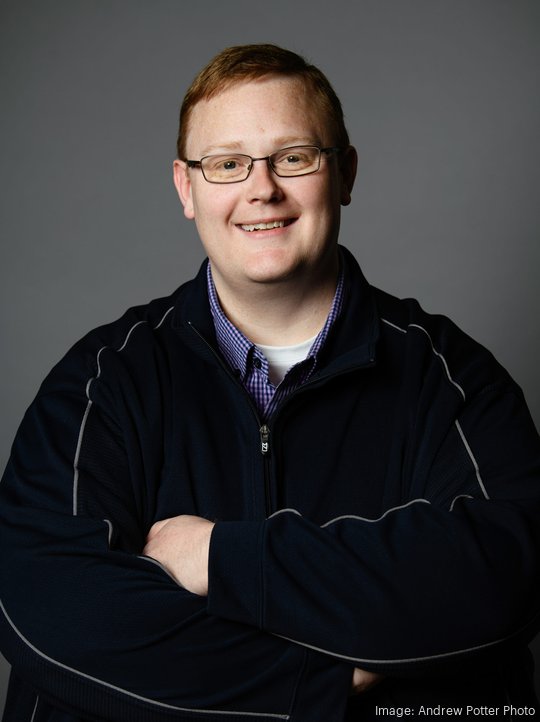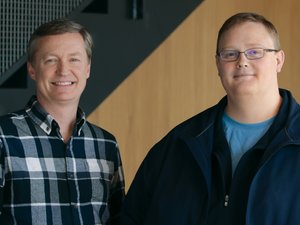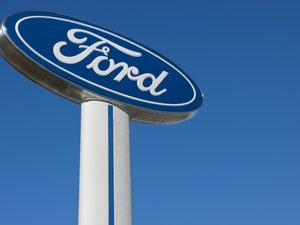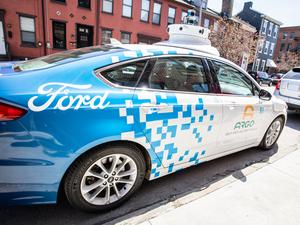
After months of speculation and rumors, Stack AV has shifted into gear to serve as the latest autonomous vehicle startup looking to accelerate the development of self-driving technology. Its 150-person workforce is being led by CEO Bryan Salesky, President Peter Rander and Chief Technology Officer Brett Browning, who all hail from since-shuttered Argo AI LLC, a startup backed by Ford Motor Co. and Volkswagen AG that looked to bring self-driving technology to passenger vehicles. Now with a capital investment of close to $1 billion from Japanese multinational investment holding firm SoftBank Group Corp., Stack is looking to offer self-driving capabilities to the trucking industry. Stack doesn't have an official headquarters office yet, though it's nearing a close on about 70,000 square feet of space in the Strip District to coincide with a testing facility at RIDC Westmoreland Innovation Center outside of New Stanton, which Argo used previously. Salesky spoke with Pittsburgh Inno for an interview about the role the Pittsburgh region will play in these commercialization efforts and how the startup will look to rival its already-established peers operating in this space.
Argo was a passenger vehicle-focused attempt of self-driving technology but now you're switching to trucking-based operations. What's the intentionality behind that and what are you hoping to bring from lessons learned out of the passenger approach to autonomous vehicles?
The trucking business model in general I think is interesting, especially as you see the cost of the driver increasing substantially. There's also a desire that most truck drivers want to be able to be at home at night, not necessarily doing the long haul work. You've got a whole bunch of things in the logistics and supply chain that don't even have to do with self-driving that tend to be pretty inefficient today where advanced scheduling and route optimization can come out of what we know how to do from all of our past experience in robotics. I think those things, when you add them together, there's a business model there that is compelling where you can not only reduce the cost of operating these vehicles but you can also do it where it's hardest to attract and retain drivers to want to do the job. And you can also reduce the cost to the consumer ultimately.
It sounds like there might be commercialization steps along the way for Stack to realize before it achieves fully autonomous driving, right?
Our core is very much to do the self-driving part of the truck, but that truck has to connect to a smart brain, if you will, as to what routes it needs to drive. And so we've always had a hand in helping to cultivate those parts of the system.
Can you explain this partnership with SoftBank and how the firm aligns with Stack's vision for self-driving?
So first off, SoftBank has a long track record in really identifying technology transformations early on, and they've made a number of investments in companies that are at the forefront of the AI revolution. They take a bold, long-term approach. It's underpinned by the core belief that AI is going to reinvent industries, create new ones and propel humanity forward.
This is a part of the mission that I wish some of the [other news] articles would have picked up more on, but I think a lot of people still want to know: "Why self-driving?" Well, "why self-driving" is because of the potential that the technology has to improve safety—in our case, to improve over-the-road truck safety; it's to fix issues that are still persistent in the supply chain, and we saw many of those very acutely during the pandemic. But what it comes down to, though, the net result is if you fix those things, it improves people's lives. A key point we want to really get across is that Pete and I and Brett, we've founded the company to continue our life's work on self-driving and automation. It's a means to an end though, and the result we want is to really make people's lives better through this technology, whether it be through improved safety or whether it be through lower cost to get what you want to move from A to B or to address inefficiencies that ultimately mean longer times for your package to arrive. A solid trucking industry is vital to the economy and so we think what we're doing here is important and will have a really meaningful impact on people's lives.
And so to bring that back to SoftBank, SoftBank really aligns with us on that mission, on that vision. And so it was just natural for them to be a partner and backer for us.
Many big players in the AV trucking industry have either had to pull back, raise massive capital or wind down operations completely in recent months. How does Stack plan to differentiate itself from the waning competition in this part of the AV sector?
So the three points I can give you on differentiation is first off, as a new company, we get a chance now to build it better and to think about all the advancements that have been made, especially in the last 18-24 months with generative AI and just AI in general. We now get to think about how to fold that into the product, which is I think, really exciting for the team. That fresh start is great.
We talked about the capital and runway that's sort of been afforded to us by SoftBank—we know how to build the technology, we know how to see around the corners of what works, what doesn't in that regard—SoftBank understands business models really, really well, and they're going to help us to be able to really fine-tune how we position this in the marketplace and how we ultimately deploy and build and scale that business.
And then the third differentiator I give you is that we have a world-class team here in Pittsburgh and across the U.S. with many decades of experience in self-driving. In a lot of the consolidation that has happened in the industry, I think a pattern you could see is the ones that are still around are the ones that have pretty experienced pedigree in their teams.
Speaking of teams, is Stack hiring, and if so, for what type of roles and for how many total positions?
We're not going to disclose the number that we're trying to fill and we're on the look for the best talent possible in all aspects of engineering, whether it be computer vision, AI but also mechanical engineering, electrical engineering, people with hardware and embedded software backgrounds. Really a very wide-angle lens on engineering is the emphasis for us right now.
Do you have a pitch to those who are currently working at other AV firms in the city who might have an interest in joining Stack's team?
Well, first off, it's a very knowledgeable workforce, so very rarely do I have to give a pitch. They're making their own assessments and asking us lots of questions. But the idea of a fresh start and the ability to take what you know and think about how to do it better, I think every good engineer, that's in their nature. And so the idea that you can do that and also be part of a company that's moving fast and that has the resources that you need to really pull this off, it's pretty exciting.
How does Stack envision its commercial rollout: Is this a subscription-based trucking service or some other form of of commercialization? Is there a timeline for that?
Well, we'll get into those details, I'm sure, in future announcements. Right now we're focused on just announcing the company and building the team.
When might Pittsburgh start to see the fruit of Stack's involvement and success here locally?
I think Pittsburgh's seen it already. What's great is we're in rapid growth mode again. We're bringing in and relocating talent to the city. We're investing in the city. It has a knock-on effect that it is real. People who live and work in the city use city services, restaurants, they're taxpayers. What I'm excited about is that this is not the first and it won't be the last robotics startup to land in the city and call it home. There are over 100 robotics startups in the city, many of whom don't get a lot of press, but sure are hard-working, good companies, and the city is so welcoming to them, provides so much support to them, and the talent is here. It comes out of [the University of Pittsburgh], out of [Carnegie Mellon University]. And that life cycle is sort of like a flywheel that feeds itself so if we can keep that talent in the city and we can give them rewarding work and great companies to work for, then I think we'll see in the decades to come that the future is pretty bright for Pittsburgh.









